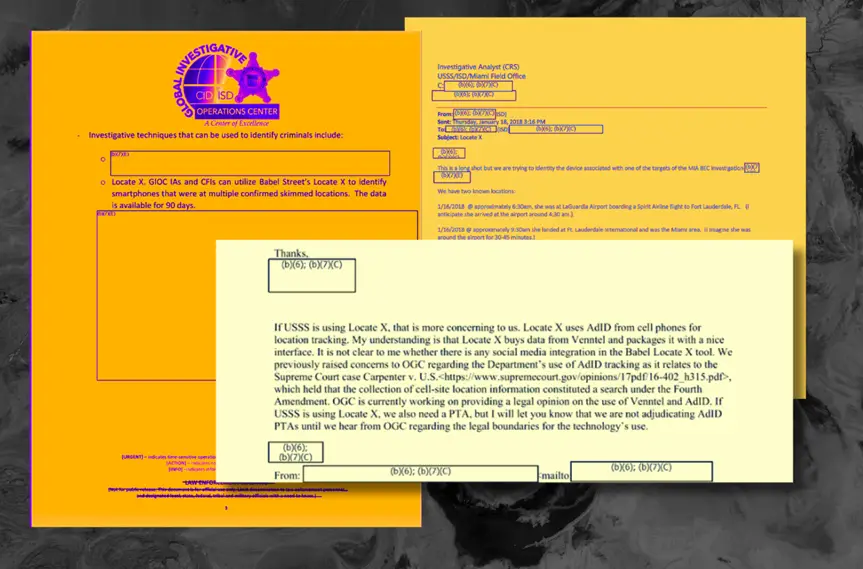
Employees of the U.S. Secret Service have engaged in a debate over whether a warrant is necessary to access location data collected through ordinary smartphone applications. According to internal communications obtained by 404 Media, some agents argued that individuals voluntarily agree to tracking by accepting an app’s terms of service. However, users are often unaware that their data may ultimately be accessible to government authorities.
The disclosed correspondence sheds light on the Secret Service’s use of a tool called Locate X, which enables tracking a person’s movements through their phone. In 2023, an investigation revealed that the Secret Service, Customs and Border Protection, and Immigration and Customs Enforcement had unlawfully accessed such data. In response to journalists’ inquiries, Secret Service representatives stated that this tool is no longer in use.
Locate X, developed by Babel Street, collects movement data from iOS and Android apps. These applications transmit information to data brokers, who then make it available to systems like Locate X. Previously, journalists reported that the tool could trace individuals’ movements, such as those visiting specific clinics, down to their residences.
Initial reports on the use of Locate X surfaced in 2020 through a Protocol article, which established that the USSS and other agencies had employed the program to track fraudsters, including those stealing credit card data. One document indicated that the tool helped identify phones located in areas where skimming incidents had occurred.
However, within the Secret Service, disagreements arose concerning the legality of accessing data without a warrant. Some staff believed the tool was subject to the Supreme Court’s ruling in the Timothy Carpenter case, which determined that accessing cellular data requires a warrant. Babel Street, however, maintained that its tool operated lawfully, as data was collected with users’ consent and anonymized. Yet a recent demonstration of Locate X revealed that a user could easily be identified via their phone’s unique advertising identifier.
The correspondence also discussed specific Secret Service divisions that utilized Locate X. For instance, the Office of Strategic Investigations applied the tool for locating phones in airports and conducting international fraud investigations involving cryptocurrency.
Senator Ron Wyden expressed concern that the government was purchasing location data without a warrant, thus circumventing the Fourth Amendment. Wyden argued that Congress must enact legislation establishing strict guidelines for government agencies’ use of commercial data. In response to inquiries, the Secret Service confirmed that it operates within legal and policy frameworks, though it no longer uses Locate X.


